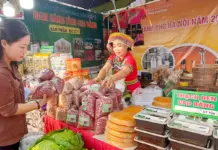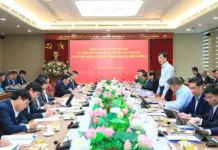Vu Xuan Hong, former President of the Viet Nam Union of Friendship Organizations
A “miniature Vietnam” in East Village (New York)
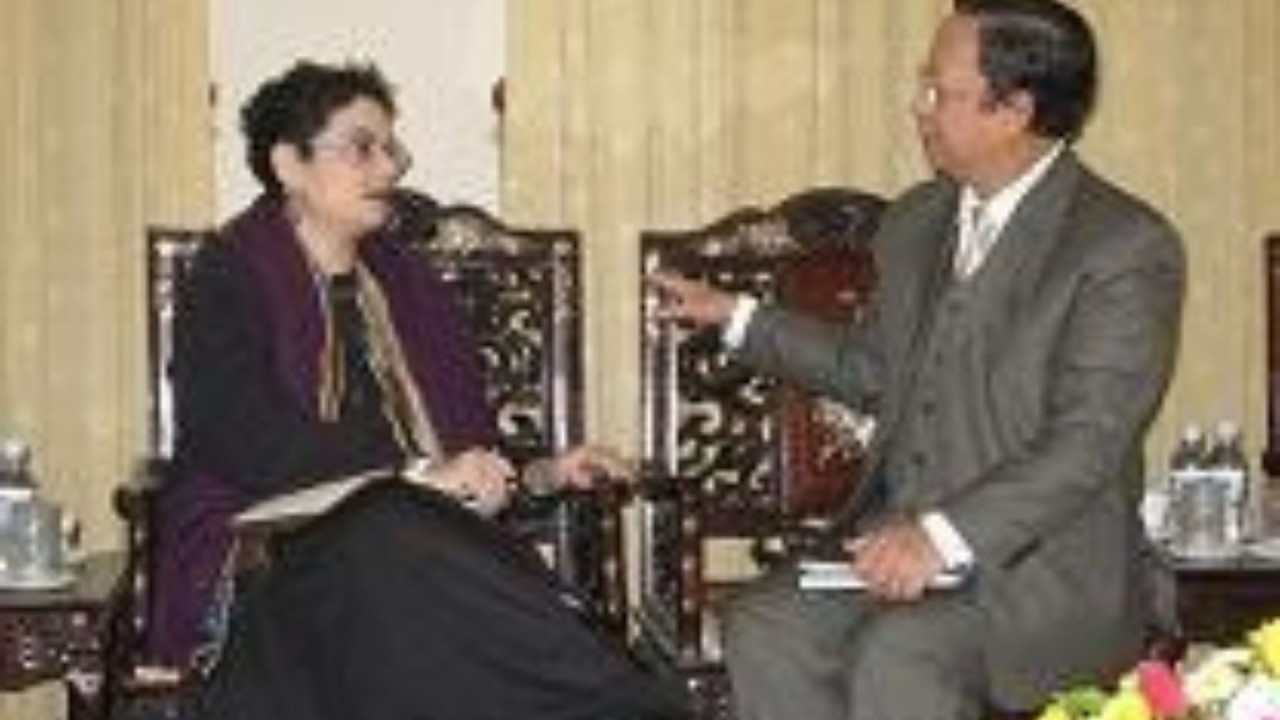 |
| Vu Xuan Hong received Merle Ratner at the headquarters of the Vietnam Union of Friendship Organizations on January 21, 2008. (Photo: Vietnam Union of Friendship Organizations) |
Merle Ratner and her husband’s charming modest apartment in East Village (New York) is filled with Vietnamese-themed decorations. The photographs in their house include the One Pillar Pagoda, Hanoi Old Quarter, the Long Bien Bridge, tranquil countrysides, and a woman carrying her child to the fields. She carefully kept whatever her Vietnamese friends gave her. Merle feels they are more than just decorations as they convey feelings and memories. She enthusiastically introduces her Vietnamese “fortune” to everyone. Many Vietnamese friends see her and her husband’s apartment as a small museum of Vietnam in New York.
For decades, this apartment has served as a gathering place for Vietnamese people living and working in New York, as well as the rest of the United States.
I was invited by Merle Ratner and her husband, Professor Ngo Thanh Nhan to their house on five occasions. Every time I arrived, Merle went to the kitchen to prepare pho and chicken congee. Cooking Vietnamese food brings her delight and allows her to express her affection for her Vietnamese friends.
Ambassador Pham Quang Vinh, President of the Vietnam-USA Society:
Merle Ratner is a bridge between Vietnam and the US
Merle always told me and our colleagues, “I love Vietnam because of the Vietnamese people and also because of the path chosen by Vietnam.”
Merle fights for social justice. Vietnam’s route to socialism seeks to promote peace, happiness, and prosperity to the country, region, and world. That’s consistent with Merle’s views and values. That is why she attended Nguyen Ai Quoc School to learn more about Vietnam’s path and principles, thereby building faith in socialism.
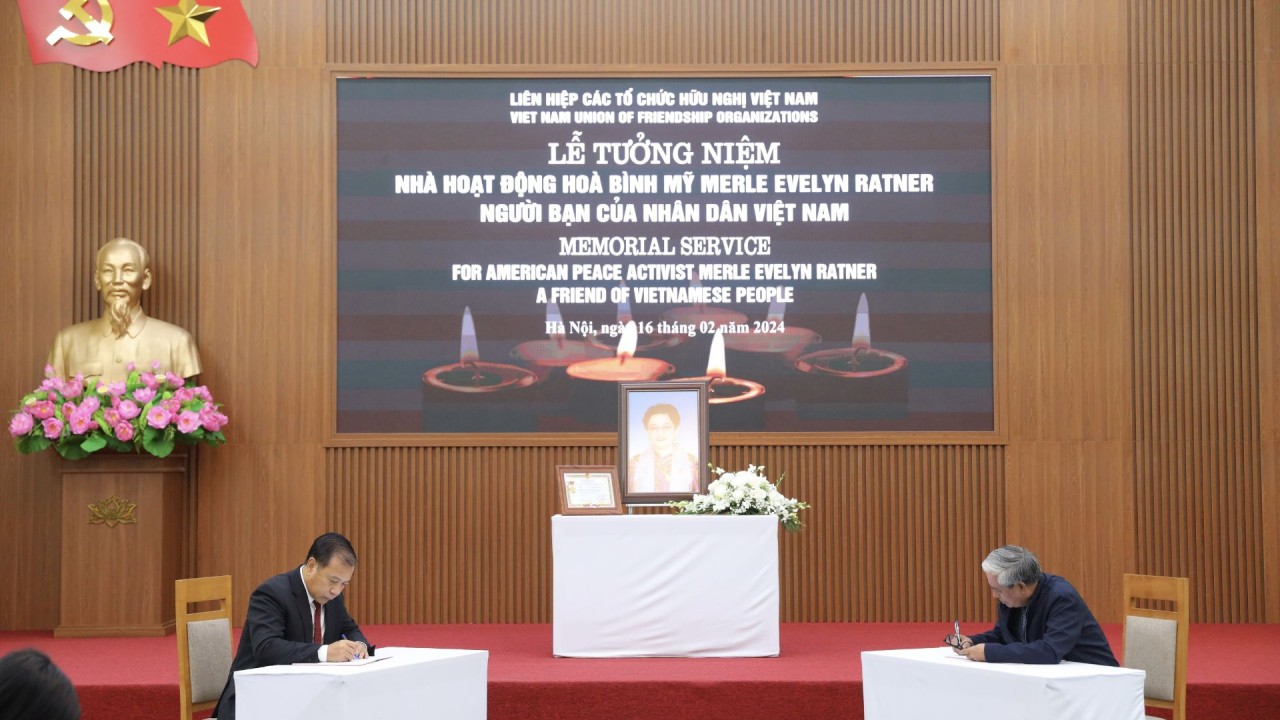 |
| Ambassador Pham Quang Vinh (R) writes in the condolence book (Photo: Dinh Hoa) |
After the war ended, Merle continued to actively participate in movements to overcome the war’s consequences, demand justice for Vietnamese Agent Orange victims, normalize relations between the two nations, and repeal the ban on Vietnam.
Travel for the Vietnamese Permanent Delegation to the US (New York) was difficult in the 1980s when ties between the two countries had not yet been restored. We were invited by left-wing friends, with Merle enthusiastically participating.
Looking back at the current Vietnam-US relationship, we always remember our friends in the past, present, and future, including Merle Ratner
Bui The Giang, Vice President of the Vietnam-USA Society:
“Vietnam had become part of Merle Ratner’s life”
I first met Merle about 40 years ago, when she worked as a volunteer in Hanoi to help edit materials translated from Vietnamese to English before the Foreign Language Publishing House, now the World Publishers.
Coming to Vietnam those days meant accepting without hesitation, a difficult livelihood, like that of every Vietnamese people. This was the time when the country was deeply engulfed in an economic, social, and foreign relations crisis. Against that backdrop, Merle Ratner stood out in her optimism and conviction for a better Vietnam as she had done during the hard years when we were fighting for our national liberation, independence, and freedom.
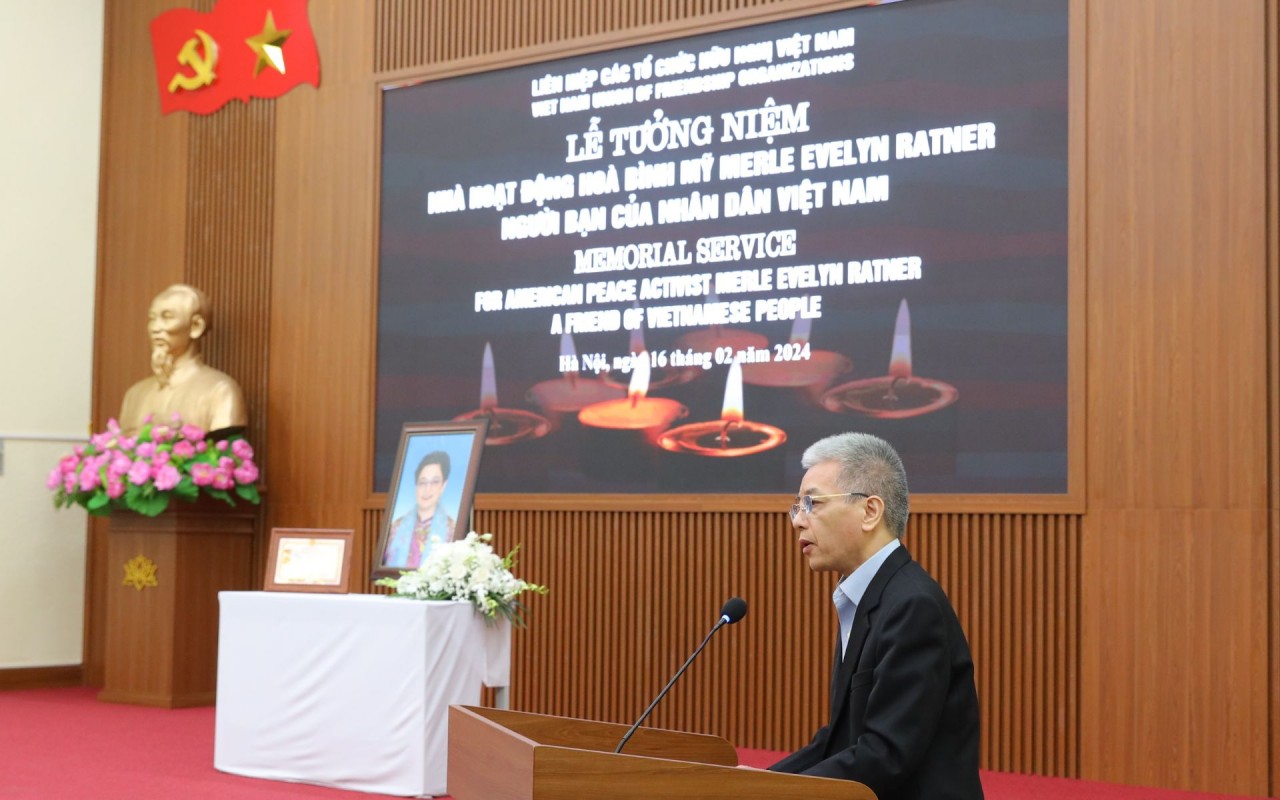 |
| Bui The Giang, Vice President of the Vietnam – USA Society, delivers a speech at the memorial service for Merle Ratner. (Photo: Dinh Hoa) |
I often heard her singing popular Vietnamese songs like Saigon’s Young Women Transforming Ammunitions. And miraculously, she remembered the Vietnamese lyrics of those songs as she sang them not only during those far-away years but also recently when we last met. Her explanation was simple: Vietnam, with its history, culture, songs, poets, food, and people, had become part of her life.
This is true of Merle’s association with the past and traditional Vietnam. This is also true of Merle’s association with the contemporary and transforming Vietnam. Her association with Vietnam has always had in the center the people, among them the poor, the disadvantaged, and Agent Orange victims in the first place.
Ambassador Dinh Thi Minh Huyen, former Director of the Department of International Organizations under the Ministry of Foreign Affairs:
Accompanying Vietnamese Agent Orange victims
From September 29 to November 1, 2008, I joined a group of Vietnamese victims of Agent Orange who went to the US to sue 37 US chemical manufacturing companies that supplied dangerous chemicals to the US military to the US Supreme Court. Merle Ratner and Professor Ngo Thanh Nhan from Vietnam Agent Orange Relief & Responsibility Campaign (VAORRC) sponsored and organized the group’s trips.
The delegation went to ten cities in eight states, held over 80 interviews with journalists, radio and television stations, and met with veterans, parliamentarians, and public health professionals, intellectuals and students communities, lawyers, and peace activists to share the significant, long-term, multigenerational impacts that Vietnamese victims of Agent Orange/dioxin, as well as their children and grandchildren, must suffer.
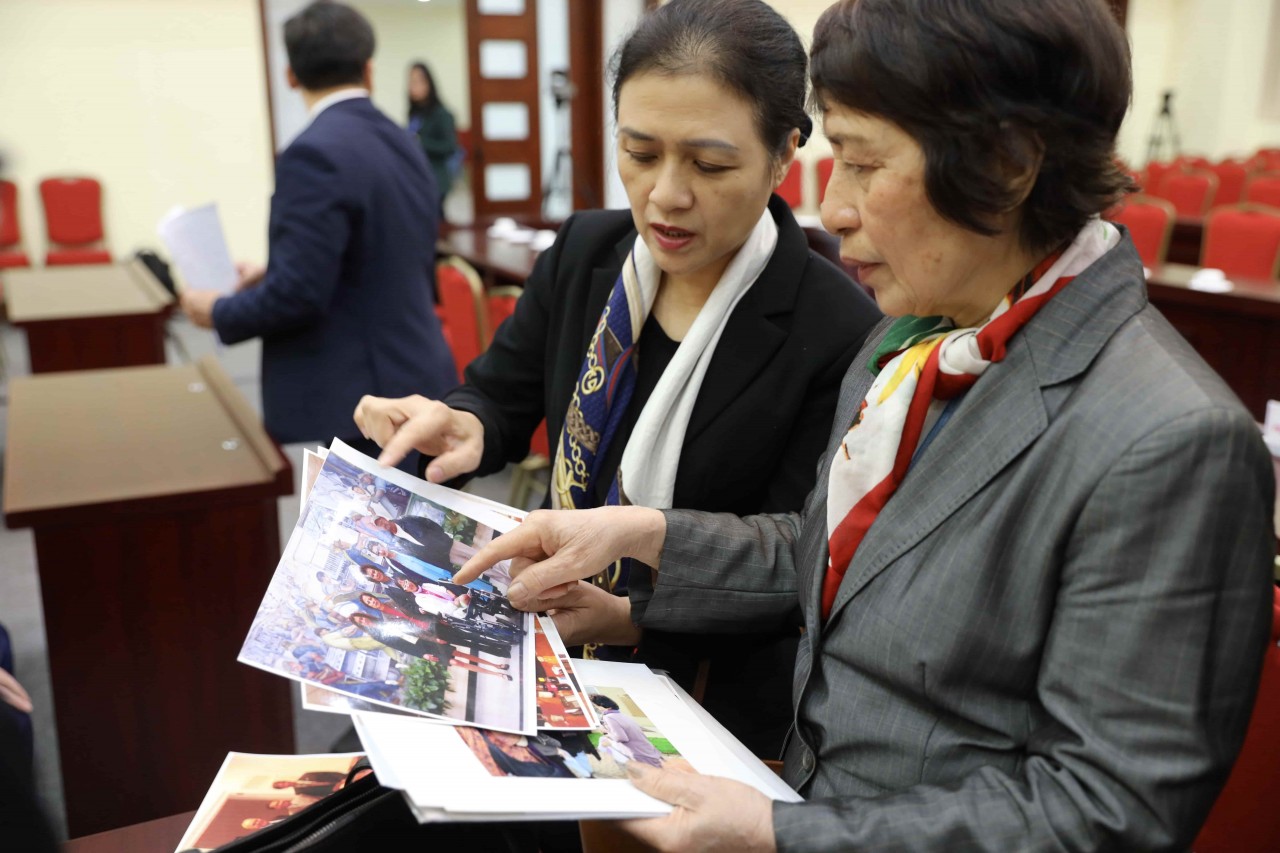 |
| Ambassador Dinh Thi Minh Huyen (first, from right) and Ambassador Nguyen Phuong Nga review photos of a group of Vietnamese Agent Orange victims taken with Merle Ratner in 2008 in the US. (Photo: Dinh Hoa) |
The delegation’s activities have contributed to helping Americans in general better understand the chemical warfare conducted by the US military in Vietnam and the serious and long-term consequences suffered by Vietnamese victims of Agent Orange. The Americans with whom the delegation met were positive, particularly veterans and parliamentarians.
That achievement was due to Merle and his husband’s significant contributions, which included accompanying the group, providing financial support, and transportation, organizing meetings, and preparing material and paperwork.
Although the lawsuit was rejected by the US Supreme Court, it was an extended fight for justice. Merle’s major contribution is that she was one of the people who actively produced six relief bills for victims of Agent Orange/dioxin in Vietnam from 2011 to the present to lobby the US Congress for approval.







